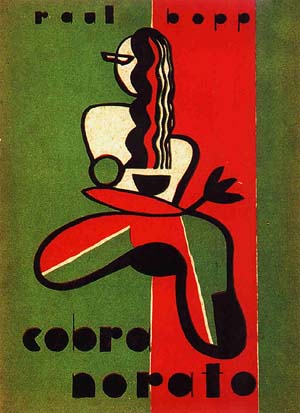David Elliott (ed.): Alexander Rodchenko (1979)
Filed under book | Tags: · art, avant-garde, biography, constructivism, photography, productivism

The first English-language monograph on the constructivist and productivist artist and designer Alexander Rodchenko.
With essays by Alexander Lavrentiev, John Milner, Andrei Nakov, Szymon Bojko, Gail Harrison, Galina Chichagova, Zakhar Bykov, Hubertus Gassner, and historical writings by Rodchenko, Osip Brik, and Varvara Stepanova.
Published to coincide with the first retrospective exhibition of Rodchenko’s work shown at the Museum of Modern Art, Oxford, 10 Feb 79 to 25 Mar 79; Stedelijk Van Abbemuseum, Eindhoven, 11 May 79 to 17 Jun 79; Musée d’art contemporain, Montréal, 26 Jul 79 to 2 Sep 79.
Edited and with an Introduction by David Elliott
Designed by David King
Publisher Museum of Modern Art, Oxford, 1979
ISBN 0905836138, 9780905836133
136 pages
via Bint Bint
PDF (10 MB)
Comment (0)Barton Byg: Landscapes of Resistance: The German Films of Danièle Huillet and Jean-Marie Straub (1995)
Filed under book | Tags: · avant-garde, cinema, film, film criticism, Frankfurt school, left, modernism, narrative, politics

“Fervently admired and frequently reviled, Jean-Marie Straub and Danièle Huillet—who have lived and worked together since the 1950s—may well be the most uncompromising, not to say intransigent, filmmakers in the history of the medium. Their radical and deeply political films placed them as forerunners of the New German Cinema movement in the 1960s and influential figures in the subsequent explosion of the European avant-garde. In Landscapes of Resistance, Barton Byg fills a significant gap in modern German and European cinema studies by tracing the career of the two filmmakers and exploring their connection to German modernism, in particular their relationship to the Frankfurt School.
Although they are not German themselves, Straub and Huillet have used German material as the basis for the majority of their films. They have transcribed prose by Böll and Kafka, operas by Schoenberg, and verse dramas by Hölderlin. Byg explores how their work engages German culture with a critical distance and affection and confronts the artificiality of divisions between high and low culture.”
Publisher University of California Press, 1995
Open access
ISBN 0520089081, 9780520089082
xiii+303 pages
Reviews: Ulrich Kriest (Medienwissenschaft 1997, DE), Margret Eifler (The German Quarterly 2000).
Comment (0)Raul Bopp: Cobra Norato (1931–) [BR-PT, EN]
Filed under poetry | Tags: · anthropophagy, avant-garde, brazil, modernism, poetry

“Raised in the south of Brazil, trained as a lawyer in Recife and Rio, and seasoned as a diplomat in Japan and the United States, Raul Bopp found his true subject in Manaus, where he discovered what he insisted was the authentic Brazil. Bopp brought to the early Modernist movement in Brazil a fascination with the folklore, Indian languages, and culture of the vast hinterland of the Amazon basin. As a contributor to the magazine Revista de Antropofagia (Anthropophagical Review) in the 1920s and 1930s, Bopp defined the concerns of what he called the “Cannibalist school” of poetry. ‘Anthropophagical’ in their appropriative and assimilative relation to European experimental writing, the theories of Bopp and Oswald de Andrade further associated them with the tenets of the cosmopolitan/indigenist “Verde e Amarelo” writers, who took their name (“The Green and Yellow”) from the colors of the Brazilian flag.
His long poem Cobra Norato (The Snake Norato or, as translated by Renato Rezende, Black Snake) was written in 1928 and published in its first version in 1931. In it Bopp embodies his primitivist, mystical sense of the life of Brazil’s interior, whose energy he and the other “Cannibalists” proposed as an alternative to the compromising forces of modern urban life. Skeptical, impressionistic, rhythmically complex, and erotically playful, the poem moves at times like a dream or a fairy tale. Its politics, however, are humanitarian and ecologically alert to the dangers o fexploiting the rain forest and its indigenous cultures. In later editions, Bopp softened the bluntness and difficulty of the poem’s diction, making the tone less austerely visionary and more tender. In his later poems, in his criticism, and in his several volumes of memoirs, Bopp continued his Modernist advocacy of Amazonian and Afro-Brazilian folklore as sources of energy and psychic survival.” (Source)
First published in Rio de Janeiro, 1937.
Cobra Norato / Black Snake (BR-Portuguese/English, trans. Renato Rezende, 1996, excerpts, HTML)
Cobra Norato (English, trans. Chris Daniels, 2008)

